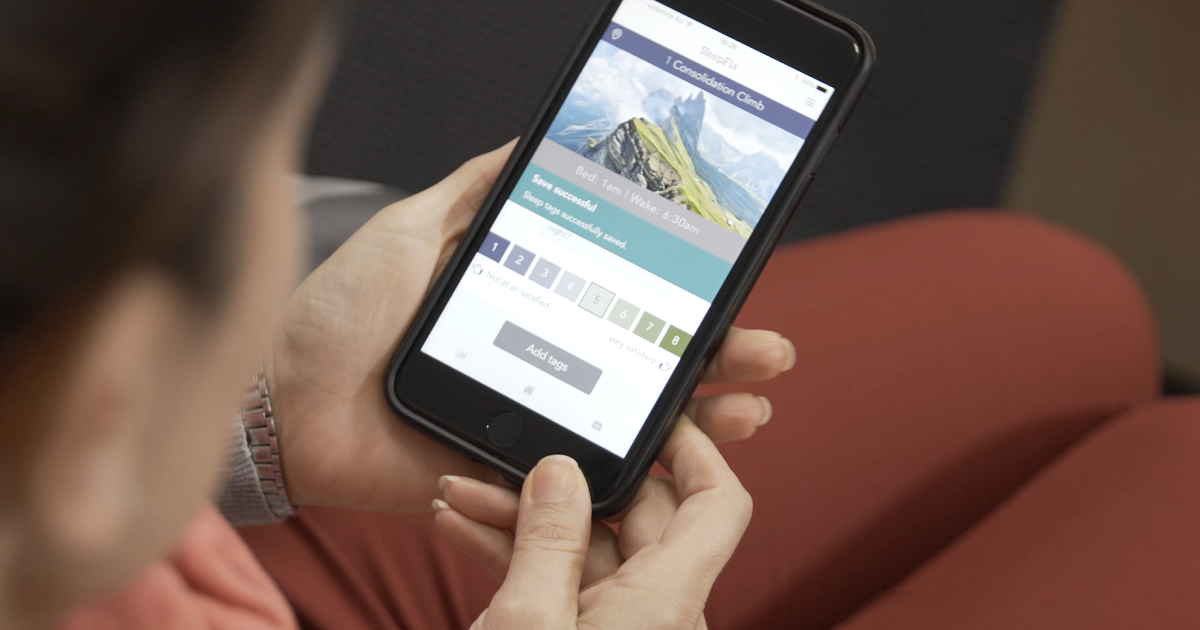The Woolcock Institute of Medical Research

Can an app help older Australians sleep?
Research-backed sleep app, SleepFix, paired with a wearable sleep tracker device may be the answer to helping people aged over 60 beat insomnia, Woolcock Institute of Medical Research scientists say.
Already shown to be effective in people under 60, researchers are now pinning their hopes on SleepFix to aid older Australians in getting a good nights’ sleep.
Study lead Associate Professor Christopher Gordon says the Woolcock’s first study, published in 2021 in the journal Behavioral Sleep Medicine, found that people with insomnia who used both SleepFix and a FitBit had greater improvements in sleep compared to those who didn’t. Now he wants to see if the same results can be replicated in an older population.
“Many people think that older people aren’t digitally savvy and that they would struggle with the digital intervention, but evidence suggests that older people use smartphones and apps often, especially those related to their health and wellbeing,” he says.
Insomnia, which affects about 10 per cent of Australian adults (with more than a third also experiencing bouts of insomnia at some point in their lives) is a major health problem that commonly affects older adults and is under-recognised and under-treated.
While insomnia is debilitating for people of all ages, in older people it can be particularly harmful, with those affected reporting poorer overall health, lower quality of life, increased daytime fatigue and poor mental health compared to those without insomnia.
Want to stay up to date with our research on sleep conditions?
Sign up to our monthly newsletter
“For various reasons, older people are more likely to have sleep disturbances and higher rates of insomnia, including chronic insomnia, which is when a person has difficulty going to sleep, staying asleep or waking early for at least three days a week for three months or longer,” Associate Professor Gordon says.
He says the study has been designed so that the control group (the patients who will not be using the app and wearable device), will engage with three online sleep health modules and then receive access to SleepFix at the end of the study.
Finding out whether digital sleep intervention is effective in older Australians is especially important in light of the shortage of current psychologist services, and the tendency for GPs to address sleep problems with medication that, if taken over a long period of time, can prove detrimental.
“People with sleep disturbances are more likely to be prescribed benzodiazepines, which is not a long-term solution,” Associate Professor Gordon says. “Benzodiazepines tend to increase falls and day-time sleepiness in older people, and can cause real problems for those who have become dependent on them.”
Research shows that older adults are increasingly interested in using digital health-related information and interventions. Currently, there are more than 350,000 mobile apps in the health and wellness space, but the vast majority are not supported with any high-quality evidence.
“The older you get, the more likely it is that you will have insomnia, and digital intervention is potentially an accessible and effective way to treat it,” he says.










